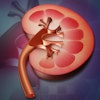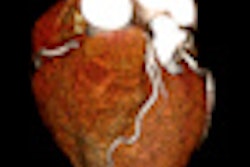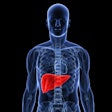Individuals with a personal or family history of colorectal cancer can cut their risk of dying from the disease by undergoing annual fecal immunochemical testing (FIT) between the standard 10-year cycles of colonoscopy screening, according to a new study in Gastroenterology.
"Our study results suggest that interval fecal immunochemical testing in a high-risk colonoscopy program can be used for detecting missed or rapidly developing lesions," said lead author Graeme Young, MD, from Flinders University in South Australia, in a statement accompanying the study's release (Gastroenterology, December 2010, Vol. 139:6, pp. 1918-1926).
In high-risk individuals, rapidly progressing lesions or missed lesions on colonoscopy can reduce the effectiveness of colorectal cancer surveillance programs. "We investigated whether giving fecal immunochemical tests for hemoglobin between surveillance colonoscopies resulted in earlier detection of neoplasia," the authors wrote.
The study examined 1,736 patients with a family or personal history of colorectal cancer for a total of 8,863 person-years of surveillance, which extended for as long as 20 years in some individuals, who underwent a minimum of two colonoscopies.
After excluding patients for genetic syndromes, colorectal surgery, or inflammatory bowel disease, the cohort was offered FIT annually in the interval between colonoscopies. A positive FIT generated an additional colonoscopy.
FIT detected 12 of 14 cancers (86%) and 60 of 96 (63%) advanced adenomas among the 1,071 asymptomatic individuals. In patients with positive FIT results, the cancer was diagnosed a median of 25 months earlier (24 months earlier for adenomas).
Those whose FIT results were repeatedly negative experienced a nearly twofold reduction in the risk of cancer and advanced adenomas, compared with patients who did not undergo FIT (5.5% versus 10.1%, respectively; p = 0.00014).
The most advanced stages of neoplasia were associated with higher age at diagnosis, male sex, and FIT results, and the probability of advanced-stage cancers was lowest among those with negative FIT results (odds ratio = 0.68, p < 0.001).
"By using [FIT] ... in the interval between surveillance colonoscopies, we were able to detect cancer much sooner than if we had waited for the scheduled surveillance," Young said in the statement. "In fact, in those patients who consistently returned a negative fecal immunochemical test, the chance of finding cancer or advanced adenoma was significantly reduced."
By Eric Barnes
AuntMinnie.com staff writer
December 8, 2010
Related Reading
New stool DNA test finds adenomas as well as colon cancer, October 29, 2010
FOBT accuracy differs between men and women, September 7, 2010
CT-based Crohn's diagnosis takes aim at endoscopy, June 29, 2010
Colorectal cancer screening participation is highest with immunochemical test, December 31, 2009
Delayed return of fecal blood tests may miss colorectal cancers, August 11, 2009
Copyright © 2010 AuntMinnie.com




















